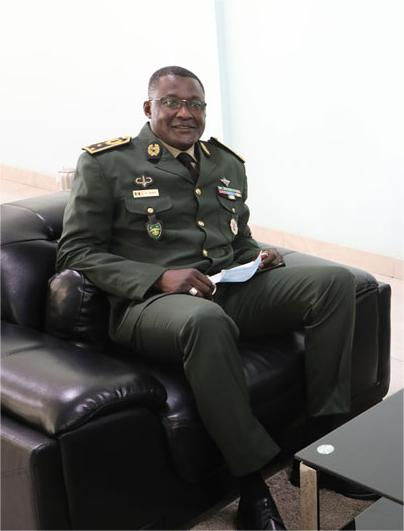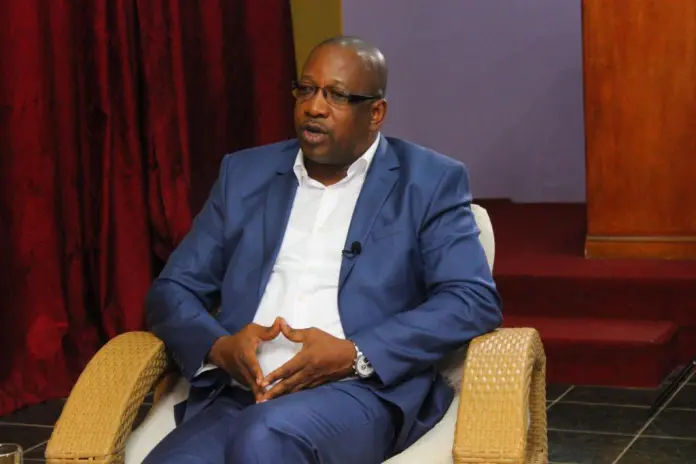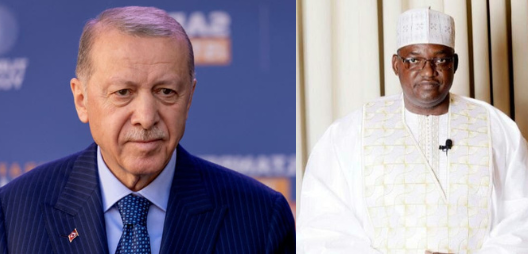.webp)
By: Momodou Justice Darboe
The spokesperson of the opposition United Democratic Party (UDP) Almamy Taal has insisted that the waste situation in Banjul, Kanifing Municipality (KM), and West Coast Region (WCR) is not an indictment of the UDP, saying since the passage of the Local Government Act, efforts were being consistently employed to marginalize elected local leaders.
The Brikama Area Council (BAC), Banjul City Council (BCC), and Kanifing Municipal Council (KMC) have been scolded and derided by the ruling party officials during the recently concluded Meet-The-People tour for their inability to adequately deal with the problem of rubbish accumulation in parts of their jurisdictions.
Some commentators said the inability of mayors Rohey MalickLowe and Talib Bensouda as well as BAC’s chairman YankubaDarboe to make major parts of their jurisdiction clean is a glaring indication of how the UDP will deal with challenges if voted into office. Others described the lackluster waste management systems in the local government areas as an indictment of the UDP.
“I don’t think it’s an indictment of the UDP. Since the passing of the Local Government Act, you have seen consistent efforts to marginalize elected local leaders but when it comes to environmental sanitation, I think the mayor of KMC,particularly has been very, very proactive,” Taal said as he cited the Mbalit Project and the beautification of the MamadiManiang Highway.
According to the UDP spokesman, it’s worth conducting diagnostics of the Local Government Act “to see how it has been designed to marginalize the elected leaders of local communities throughout The Gambia”.
He explained that environmental cleanliness is the responsibility of everybody.
“We all wake up in the morning and make our bed to ensure that our immediate environment is clean but when it comes to the disposal of waste, we have a situation where you don’t have a national effort. Even in the days of the dictatorship of YahyaJammeh, there used to be Set-Settal that was almost regimented and militaristic but now everywhere you go, every neighborhoodyou go, people in the same neighborhood will pick garbage from their houses and go to a corner to throw it there,” stated Taal. He went on: “We have to understand that waste management, waste collection is done at an individual level. My waste is being collected by a private company. And there are neighbors, who do the same thing but in the same neighborhood, some of our neighbors are throwing their garbage outside.”
To Taal, to point a finger at the local governments for the deplorable waste situation in their local government areas is tantamount to scapegoating. He explained: “All I am saying is local governments complement the central government. The roads of Banjul were made by the taxpayers’ money. Everyone knows this but when the project is completed now that you have some issues like waste collection and disposal, the local government is being blamed. I think that is unjustified and then, there is really no reason. When you pay your compound rate whether in Banjul, KM, or WCR, we should all agree as to how much does that contributes towards the administration of local governments.
“Secondly, we noticed that in local government, actually, the CEO and the management are responsible for the administration of the funds and resources. We have had several occasions, exposing the corruption and mismanagement of our CEOs and finance directors. And, also as you have been hearing from the commission of inquiry established earlier this year that almost all the responsibility is on the administration led by the CEOs.And, we have heard cases where fraud and misappropriationhave been exposed by the sitting mayors and chairmen and all that the central government does is that they are going to be reinstated almost by force. The recent event in the West CoastRegion, where the CEO and finance director have been alleged to have participated in corruption, is the latest one in this regard. It’s the central government saying how local governments should be managed and run.”
When put to him that the mayors and chairmen should be able to provide the strategic leadership for the administration of councils, Taal replied: “They are providing strategic leadership. That’s what I am telling you but the administration laid out by the Local Government Act is what is marginalizing their leadership. This is what is trying to diminish their functions as elected leaders. We need local government reforms in The Gambia to respond to the decentralization and devolution demands of every community because the community has to be involved not only in the way it manages waste but all other developments that are necessary to move the localities forward because you have these two tiers, where you have the selected leaders with practically no power of reforms. They have no resources allocated to them and whenever resources are allocated, it is managed by the CEOs, who are employed by the central government. So really, this is where the discussion should go. How do we make local governments more accountable and more autonomous in the management of resources?”



